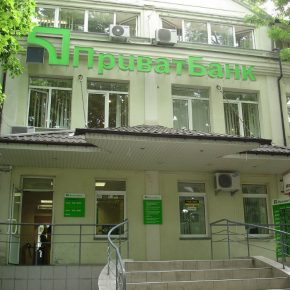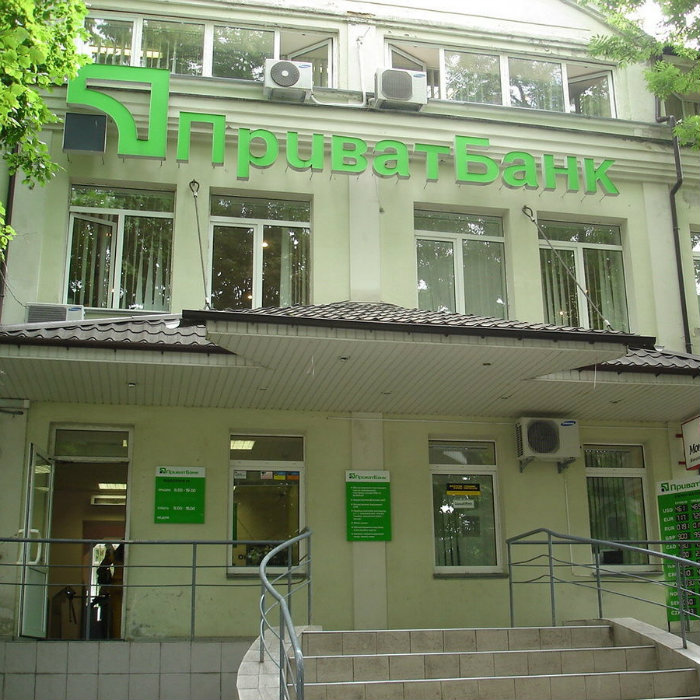
Kiev, Ukraine (TheLotCarmen, CC BY-SA)
Katerina Rozhkova, the deputy governor of the central bank of Ukraine (NBU), revealed that the former owners of Privatbank have filed another lawsuit demanding that the nationalization be declared illegal.
In late June, at the request of NBU, the Ukrainian government decided to recapitalize PrivatBank with the amount of UAH38.5bn (USD1.5bn). This was in response to the report of the audit company EY (formerly Ernst&Young), which indicated that the bank’s condition was worse than originally believed. On July 3rd, the Ministry of Finance informed about delays in the process of restructuring the bank’s debts, which, according to promises made to the IMF, were to be completed in the first half of this year.
Bottomless pit
According to the auditors, today there is still a capital shortage of between UAH38-50bn , i.e. approx. USD1.4-1.9bn.
“The auditors assessed that the bank was in a worse condition than was believed at the moment it was taken over by the state, and it is forced to create additional reserves to cover the losses from credit operations. In this situation the state as the owner is forced to support the bank with additional capital in order to ensure its normal operation and further development,” explained the government in an official statement.
The process of recapitalization is supposed to take place in two stages. In the first, in exchange for the bank’s shares the government will provide it with bonds with a nominal value of UAH22.5bn (USD880m), issued specifically for the occasion. Government officials argue that thanks to this, the operation will not affect the currency market and will not increase inflation.
When the company was taken over in December last year, the government estimated the costs associated with the nationalization at UAH150bn (USD5.8bn). The authorities decided to issue 30-year bonds to cover these costs. The Ukrainian central bank was supposed to buy these securities with money from the foreign reserve, i.e. actually coming from the loan granted to Ukraine by the International Monetary Fund.
So far the government has issued bonds with a nominal value of UAH117bn (USD4.5bn), only a quarter of which have been sold thus far. The obtained funds were almost entirely allocated for the repayment of a refinancing loan granted to PrivatBank by the NBU. This means the money was simply transferred from one public pocket to another. The remaining UAH80bn (USD3.1bn) in bonds are to be used to increase the bank’s statutory reserves to the level required by the Ukrainian banking law.
According to UAWire PrivatBank’s case is under the special control of the National Anti-Corruption Bureau of Ukraine (NABU). The head of the NABU, Artem Sytnyk, said in an interview with Radio Liberty that „The business of PrivatBank has been taken under special control. This is because there is great danger of the infliction of large losses to the state, since the bank’s shareholders have not yet fulfilled their obligations – they did not pay off the loan portfolio, which was in fact ‚dead’, fictitious.”
According to the estimates of the weekly Dzerkalo Tyzhnia, the nationalization of Privatbank has already cost every Ukrainian citizen UAH3,650 (USD140). And the bank’s financial needs continue to increase.
In addition to the money already spent, we should also include the state’s expenditure on servicing the bonds – approx. UAH12.5bn (USD490m) per year. One third of this amount falls o indexed bonds, whose interest rate changes along with the devaluation of the hryvnia, so in the case of a further weakening of the currency, the cost of debt servicing will further increase.
Lawsuits are piling up
Several weeks ago a lawsuit was submitted to a Kiev court, which could disturb the nationalization. The former owner of Privatbank, oligarch Ihor Kolomoyskyi demands the termination of the contract of guarantee which he provided to the central bank at the time of nationalization of Privatbank. In the agreement Kolomoyskyi agreed to cover the debt of the nationalized bank.
This is yet another in a series of lawsuits brought by Privatbank’s former shareholders, struggling to regain control of the company. In May the District Administrative Court in Kiev already determined that the nationalization of Privatbank was partially illegal.
The lawsuit against the central bank, the Individual Deposits Guarantee Fund, the Ministry of Finance, and the interim administrators of the bank was submitted by Ihor Kolomoyskyi and Ihor Surkis. According to reports of the media in Kiev, they asked the court to recognize as illegal a number of decisions that preceded the buyout of PrivatBank’s shares by the government, and in particular they demanded the invalidation of the agreement on the purchase of PrivatBank’s shares concluded between the Individual Deposits Guarantee Fund and the Ministry of Finance, insofar as it concerns the rights and interests of Surkis and Kolomoyskyi. The court supported their application.
Moreover, in an interview with the portal Finbalance, the deputy governor of the Central Bank of Ukraine Katerina Rozhkova revealed that the former owners of Privatbank submitted another lawsuit, in which they asked the court to determine that the decision of the central bank to classify their company in the category of insolvent banks, and the bank’s subsequent nationalization, were unlawful. They consider the very acquisition of the bank by the state as a “raid”, i.e. an illegal hostile takeover.
“The law on the deposits guarantee system, which provides for the nationalization, contains a provision that the previous owner of the shares of the bank has no right to demand from the investor (i.e. in our case the state) any compensation for damages resulting from the acquisition of the bank’s shares by a new investor, on the basis of invalidity, revocation or invalidation of any illegal decisions, transactions or other actions taken in the process of recognition of the bank as insolvent,” argued Rozhkova, indirectly admitting that in the case of Privatbank the central bank may have violated the law, and that it is possible that there were in fact no grounds to deem the bank insolvent.
The bank is also losing capital through other channels. Grigoriy and Ihor Surkis, two wealthy clients of the nationalized bank, submitted a claim to the court indicating that they did not receive the interest from funds deposited in the bank. The defendants in this case were the Ministry of Finance and the National Bank of Ukraine. In February a court in Kiev upheld the request of the Surkis brothers, ordering that they be repaid the deposits from Privatbank along with interest, for a total of UAH5bn (USD200m). The Ukrainian business service Finbalance wrote that the NBU, the Ministry of Finance and PrivatBank are ignoring the court ruling. Sooner or later, however, this money will have to be provided.
The boss is resigning and there is no business concept
The Ministry of Finance admitted that for the time being it has no concept on how to run the nationalized Privatbank. On its official website the ministry posted a statement promising the selection of an adviser who will work on the preparation of a concept for the bank’s development. “One of the priority directions in the work of the Ministry of Finance is to reform the state banking sector. That is why the Ministry supports the initiative of the supervisory board of PrivatBank, which has decided that it is necessary to involve a company recognized on the international market in the development of a business strategy for the bank,” argued the Ministry of Finance.
The interested parties were given a three day deadline to submit their application for the competition that would select the adviser. The former finance minister Oleksandr Shlapak, who was appointed as the head of PrivatBank after its takeover by the government, has resigned from his post.
“The Chairman of the Board of PrivatBank Oleksandr Shlapak has fulfilled the tasks of stabilizing the situation in the bank and conducting an audit of PrivatBank’s financial condition, and he soon plans to end this emergency term in this position. The Chairman continues to head the bank, but at the same time his statement has been communicated to the bank’s Supervisory Board, and it may be considered at the next meeting of the bank’s Supervisory Board at the end of July,” informed PrivatBank in an official statement published on its website.
With assets reaching UAH272bn (USD10.6bn, as of 1 October 2016), PrivatBank is the largest bank in Ukraine. Until the nationalization its main shareholders were Ihor Kolomoyskyi, who held 41.66 per cent of the shares, and Gennadiy Bogolyubov, who controlled 33.25 per cent of the bank’s shares. Currently 100 per cent of the shares are controlled by the Ministry of Finance.
PrivatBank’s clients include 19.9 million individuals and hundreds of thousands of companies. The bank controls 58.9 per cent of the overall Ukrainian deposits, and also has a significant share in the market of consumer credit. It runs its activity in almost 4,000 branches, and also services the majority of the market of non-cash transactions – according to data from the bank’s website, its payment terminals are currently present in the majority of Ukrainian stores, and its payment cards are used by 16.4 million Ukrainians.


